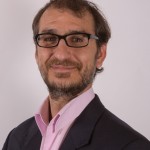
Environmental Health Program Director
Hundreds of government delegates will join representatives of intergovernmental organizations, health and environmental advocates, as well as business groups in Belgrade, Serbia November 15-18 to improve the management of toxic chemicals. The Belgrade meeting, known as an Open-Ended Working Group (OEWG), sets the stage for the Third International Conference on Chemicals Management (ICCM3) in September 2013.
Both events are part of the Strategic Approach to International Chemicals Management (SAICM), a broad global agreement to improve policies and practices. Next year will mark the 50th Anniversary of Rachel Carson’s alarming publication, Silent Spring, about the effects of DDT. Yet, humans and wildlife around the world still suffer from the continued use of toxic chemicals whose trans-boundary health and environmental impacts are improperly assessed, let alone managed.
World leaders started the process in 2002 with a pledge to ensure that chemicals are managed safely by 2020. The scope of this agreement is huge, covering all chemicals and uses throughout their lifecycle. SAICM invites participation from all sectors to devise innovative ways to achieve this ambitious objective. Unlike most treaties, SAICM is not legally-binding, the flip side being that it’s flexible and allows for civil society to actually participate in the decision-making process, rather than being observers. These characteristics make it a unique global forum for identifying important problems and devising innovative practical solutions on long-standing challenges and emerging issues, such as nanotechnologies and nanomaterials. SAICM also seeks to integrate chemical management into national development plans so that countries can avoid repeating costly mistakes of the past.
SAICM was adopted in 2006 at the First International Conference on Chemical Management (ICCM1) on the basis of three core documents:
- The Dubai Declaration, which expressed high-level political commitment to SAICM;
- The Overarching Policy Strategy, which sets out its scope, needs, objectives, financial considerations, underlying principles and approaches, and implementation; and
- The Global Plan of Action, which catalogues 273 activities to reduce risks, share knowledge, strengthen the capacity of governments, industries and civil society, in addition to curtailing illegal traffic in dangerous chemicals. The number of activities is both worrying and encouraging; indicating the scale of the challenge faced by countries around the world, especially developing countries, but also laying out concrete steps for a path forward.
Since the last major meeting in 2009 (ICCM2), despite chronic understaffing of the Secretariat and shortcomings in overall institutional support, work has continued on many fronts. Several countries made voluntary financial contributions to launch small projects in developing countries and countries with economies in transition. The Quick Start Program (QSP) Trust Fund has supported some 143 projects with activities in 103 countries since 2006 for about $30 million. However, in order to succeed, developing countries will need a steady, and significantly larger, supply of financial and technical resources.
Meanwhile, SAICM stakeholders representing government, business, academia, labor, health, environment, Indigenous Peoples and others continue to explore “emerging issues” under SAICM: nanotechnology, lead in paint, chemicals in products, and hazardous substances in the life cycle of electrical and electronic products. In addition to these issues, the OEWG will discuss a proposal to add endocrine disrupting chemicals (EDCs) as an emerging issue.
CIEL’s Chemicals Team will participate in this meeting together with an international team of NGOs grouped under the IPEN (International POPs Elimination Network) banner. Since the early days of SAICM, CIEL and its partners have been heavily involved in the development of SAICM and ensuring that it delivers on its promises. In Belgrade, CIEL will pay special attention to nanomaterials, , EDCs, and finance. CIEL will blog and post updates on its Facebook page and Twitter account on key issues at OEWG and the outcome of this preparatory session for the future of international chemicals management.
Originally posted on November 4, 2011.
